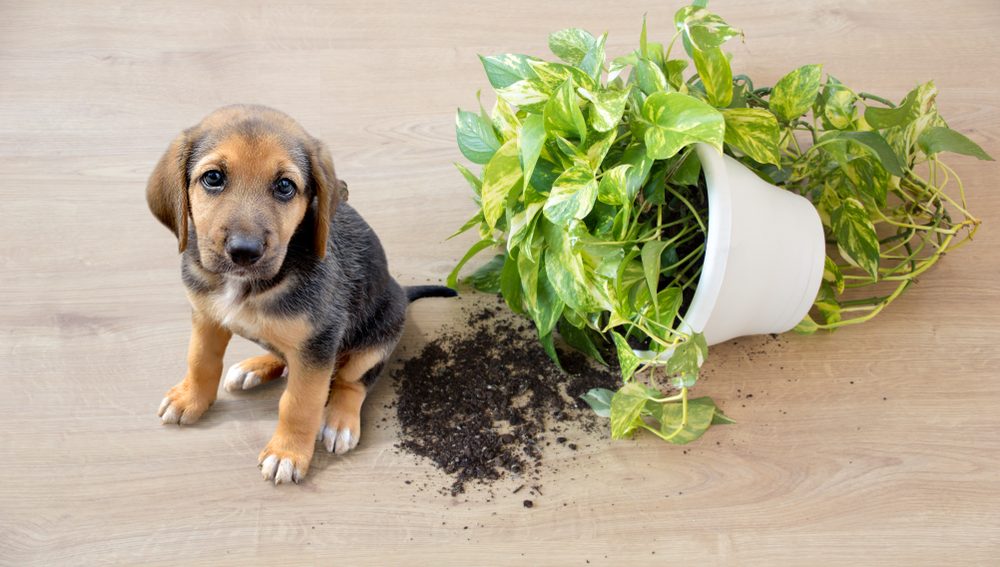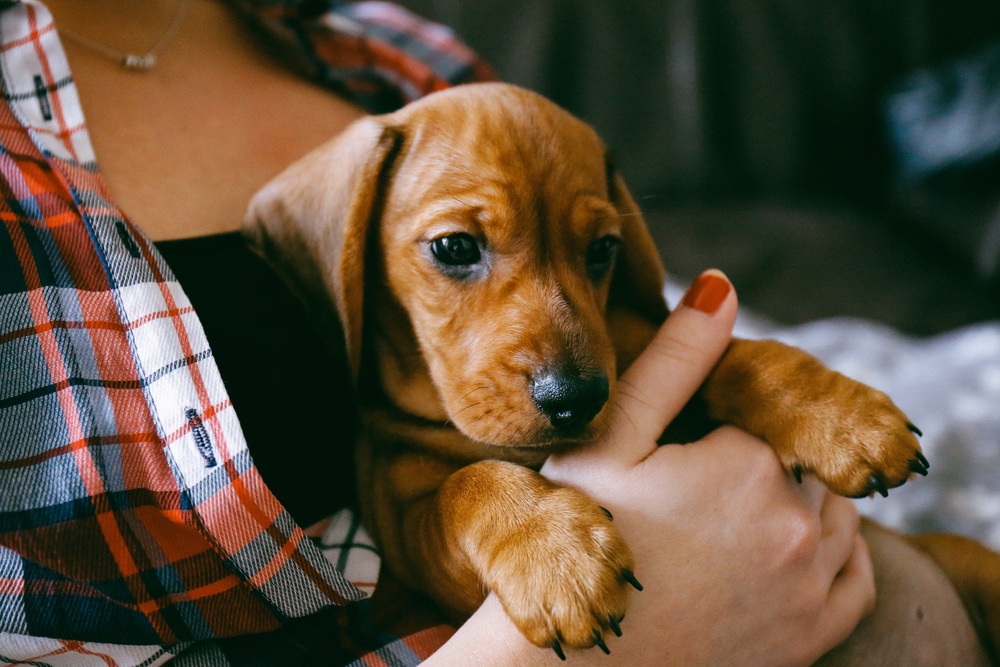
Proactive Tips To Prevent Behavior Problems in Puppies
You’ve spent endless hours scrolling through pictures of adorable puppies, extensively researching the intricacies of every breed imaginable, and compiling a list of potential puppy names. Bringing a puppy into your home is truly magical, from their floppy ears and adorable rolls, to their sweet puppy breath and wet noses. But a puppy is a lifelong commitment, and while everything they do is darn cute right now, they can easily develop some bad habits that won’t seem so cute in the years to come. Lay a strong foundation for your puppy by following these tips from Harbor Pines Veterinary Center for preventing behavior problems.
Do your puppy research
Before bringing home a puppy, spend time researching which breed would best fit your lifestyle. Are you a marathon runner, or a couch crusader? Do you have young children or other pets to consider? If you impulsively choose a puppy because they are cute, you could run into behavior problems down the road because you are not compatible. For example, if you choose a highly active breed of puppy who needs a lot of exercise, and you work long hours that means they will be home alone for long periods, they will likely react poorly—not because they are “naughty,” but because their need for companionship isn’t being met. Think also about your needs, and consider the following when assessing a breed:
- Energy level
- Compatibility with children and other animals
- Common behavioral issues
- Size and coat type, especially if you are an allergy sufferer
- Common medical conditions
Of course, every puppy’s personality is unique, but by understanding a breed’s general characteristics, you will be better prepared to make the right decision.
Prepare for your puppy—and then prepare some more
Many behavioral issues arise from a lack of planning, time, or commitment to training. Set your puppy up for success and make their transition smooth by having all their essential needs on hand before you pick them up. Speak with your veterinarian if you aren’t sure what you need, but start with these basics:
- Leash, harness, and adjustable collar — Avoid your puppy getting loose or lost by keeping them securely on a leash with a collar and identification tags.
- Crate — Instead of giving your puppy free roam of the house when you are away or unable to supervise them, leave them in a secure crate. You will need to train your puppy to accept their crate.
- Food and water bowls — A healthy, happy puppy’s basic needs include regular access to water and an age-appropriate diet.
- Puppy food — Ask your veterinarian for recommendations.
- Baby gates — Puppies like to explore, and many household items, such as electrical cords, can be dangerous. Use baby gates to block access to potentially dangerous areas or items—and items you would rather not be chewed.
- Dog bed and blanket — Supervise your puppy in their bed or crate initially, to ensure they do not nibble on their bed or blankets.
- Chew toys — It’s no secret that puppies like to chew. Appropriate chew toys help prevent your puppy from chewing on your furniture, shoes, and other belongings.
- Carpet cleaner — Let’s get real—potty training can be a slow process, and chances are your puppy is going to have some accidents. Accept this as a reality, and invest in a quality carpet cleaner. You can thank us later.
Find a qualified puppy trainer
Puppies are similar to children and rely on you to provide them with boundaries, and to teach them appropriate behavior through positive reinforcement. But, puppies don’t come with training manuals, and knowing where to start can be difficult. One option is to find a qualified dog trainer who can not only train your puppy, but also teach you training skills to continue the training process. Most trainers offer private instruction and group classes. Many pet supply stores offer puppy classes that provide socialization and behavioral training. Group classes are great for you to meet and bond with other puppy parents in the trenches, and for your puppy to make friends.
Your veterinarian can provide you with tips for choosing a trainer, and may also recommend area trainers. A good trainer should address the following:
- Inappropriate chewing
- Nipping and biting
- Jumping
- Potty training
- Crate training
- Leash manners
- Meeting new people and animals
- Mental and physical enrichment
Practice patience and consistency with your puppy
Training is an essential part of being a responsible dog owner, and lays the foundation for your puppy to enjoy a comfortable, safe, happy life. Before deciding to bring a puppy home, ask yourself if you can commit to their training. You will need time, patience and a consistent approach to teach your pup the skills they will need to live their best life. But, along the way, you and your puppy will be building a strong bond.
Our team at Harbor Pines Veterinary Center is here to help you navigate all the ups and downs of puppyhood. Bring in your new puppy for a visit, and let us welcome you both to our family. Contact us to schedule your new puppy’s first wellness appointment.

